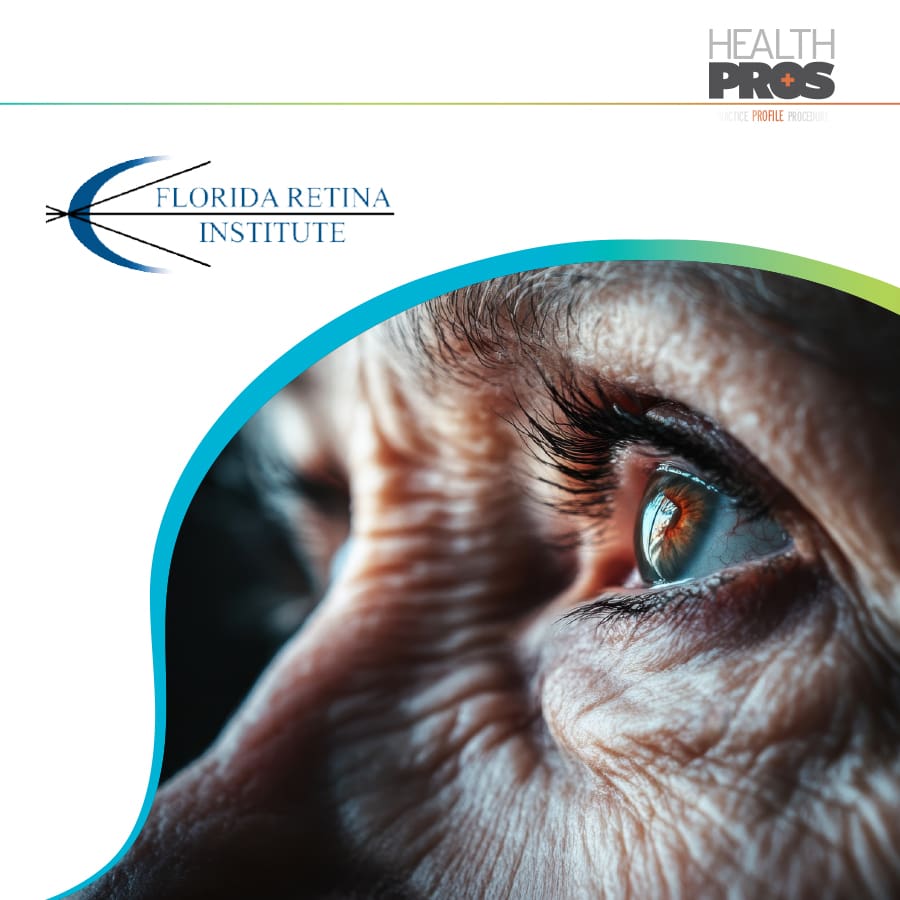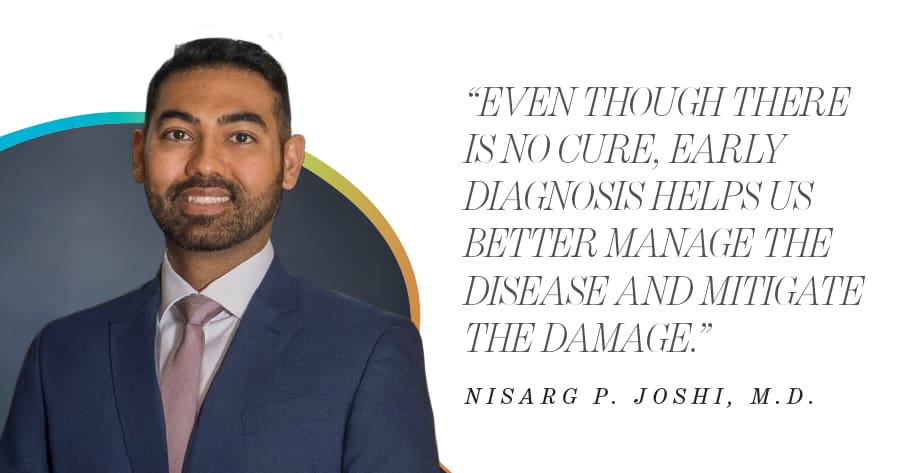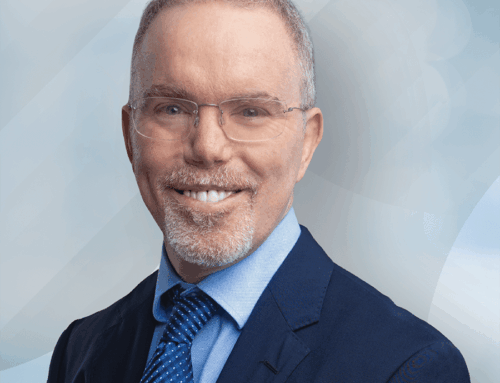December 30, 2024
Health Pros: Nisarg P. Joshi, M.D. Advancing Care and Preserving Vision

By Akers Editorial
Health Pros: Nisarg P. Joshi, M.D. Advancing Care and Preserving Vision

Dr. Joshi’s commitment and expertise in macular degeneration management helps patients see a brighter future.
Renowned as one of Florida Retina Institute’s vitreo-retinal specialists, Nisarg P. Joshi, M.D. is highly skilled in diagnosing and managing vitreo-retinal diseases, including macular degeneration.
Macular degeneration damages the center of the retina, leading to central vision problems, such as blurriness or difficulty focusing. Both eyes are often impacted, with severity varying greatly. Some individuals notice very little impact, while others may experience more significant changes in shorter periods.
“We all experience wear-and-tear changes to the retina over time. When it’s more than expected, we call that age-related macular degeneration,” Dr. Joshi explains. “At first, patients may not notice any vision changes. As it progresses, patients may develop subtle blurriness or distortion of their vision.”
While macular degeneration most often affects those over the age of 60 and Caucasian individuals, it is also seen in other ethnicities and racial backgrounds.
“There is a hereditary aspect to this condition, where individuals are predisposed because of their genetic makeup,” Dr. Joshi notes.
There are two types of macular degeneration—dry and wet—which determine the severity and speed of vision loss. Most patients present with dry macular degeneration, where age-related yellow deposits (drusen) form under the retina, progressing over five, 10, or even 20 years. Wet macular degeneration, characterized by abnormal blood vessels growing under the retina, causing bleeding, fluid leakage, and scar tissue, can cause vision problems in just a few weeks.
Although there is no cure for macular degeneration, Dr. Joshi and the Florida Retina Institute team of doctors are committed to helping patients delay the progression of the disease. “There are lifestyle modifications and things you can do that help macular degeneration and slow down its progression,” he says.
Smoking is a significant risk factor, so quitting or avoiding it can be very helpful. Additionally, eating green, leafy vegetables and controlling diabetes, blood pressure, and cholesterol can positively impact disease progression.
“A healthy overall diet is helpful. Taking care of your body is going to help your eyes also,” Dr. Joshi advises.
Different treatments are available depending on the type of macular degeneration. For dry macular degeneration, patients can take specially designed vitamins to slow disease progression. “There’s a specific formulation of multivitamin that has been shown to benefit patients with a certain level of macular degeneration—the AREDS II formula,” Dr. Joshi says.
Patients are also encouraged to monitor their vision twice a week. This can be as simple as looking at graph paper one eye at a time to notice significant vision changes, indicating that dry macular degeneration is developing into wet macular degeneration.

For wet macular degeneration, patients can undergo anterior injections into the eye every one to three months to stabilize and slow the disease. These injections, though they may sound intimidating, are designed to be comfortable and generally painless through Florida Retina Institute’s process.
“There are two goals with wet macular degeneration: to improve the swelling and bleeding that is already there, and to prevent catastrophic bleeding in the eye,” Dr. Joshi says. “That’s why it’s important for us to work together with our patients to catch wet macular degeneration early. The sooner we catch it, the better we can protect their vision.”
Additionally, new medications are available that can slow down advanced dry macular degeneration. While not everyone is a good candidate for these drugs, Dr. Joshi will offer them to patients who could benefit.
“I hope that the newer treatments can last longer so patients do not need to have as many injections. It would be wonderful to find a curative treatment, but in the meantime, we are at our patients’ side to protect and preserve vision,” Dr. Joshi says.
Florida Retina Institute’s multi-ethnic, multilingual team, including Spanish- and Portuguese-speaking doctors and staff, shapes and delivers personalized, world-class care supported by advanced training and expertise. Continuously striving for excellence in vitreo-retinal surgery and treatments, Florida Retina Institute provides exceptional services across its 20 locations in Florida and Georgia.








































